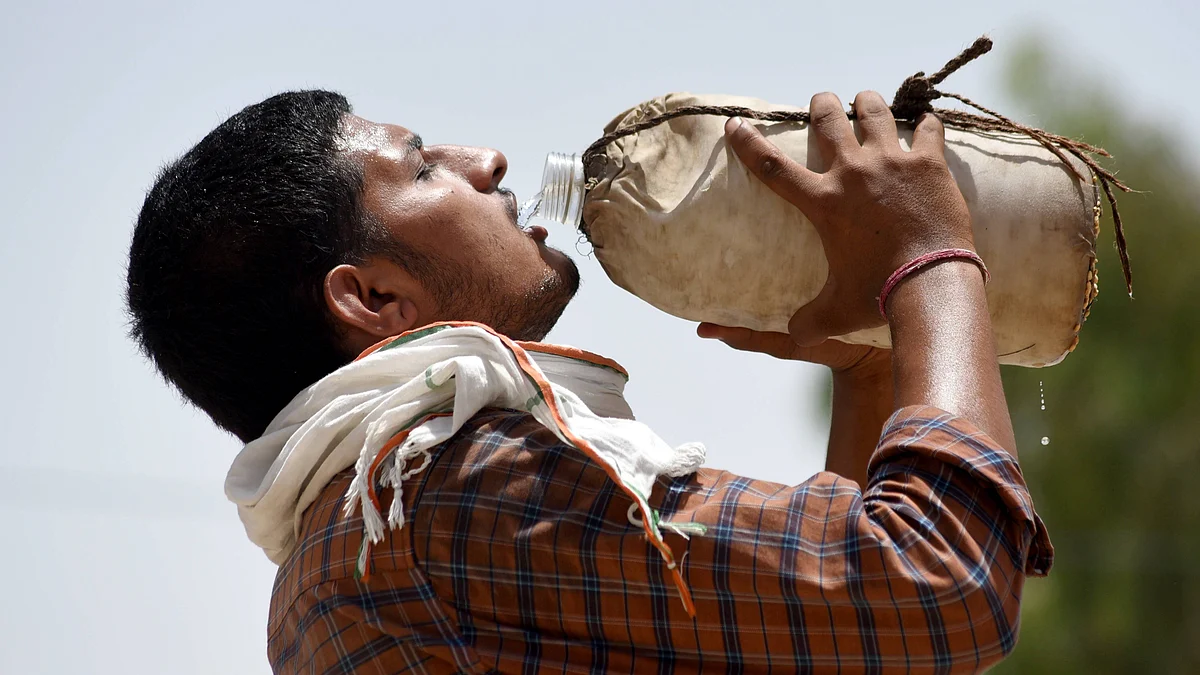Environment
Govt’s response to climate change irks former Rajya Sabha MP as World Bank raises red flag
Over 34 million jobs in India at risk from heat alone, 259 billion work hours lost annually to heat and humidity... yet the focus is still on slogans, not action, says Jawhar Sircar

Climate change and heat exposure are no longer distant threats — they are immediate risks, especially for countries like India.
Former bureaucrat and Rajya Sabha MP Jawhar Sircar has strongly criticised the Union government’s inadequate response to climate change, stating that the Centre’s efforts were far from sufficient to tackle the scale of the crisis.
"No Indian government is taking climate change seriously... the focus is still on slogans, not action. India is sleepwalking into a jobs and health disaster,” Sircar posted on X.
Published: undefined
What the World Bank study shows
According to a World Bank study cited by The Indian Express, India lost an estimated 259 billion hours of labour annually due to extreme heat and humidity in 2020-21.
Over 34 million jobs in India are at risk due to increased heat exposure, especially in sectors like agriculture, construction, and manufacturing.
India already loses more than 100 billion work hours annually to extreme heat, and this could worsen drastically by 2030–2035.
Published: undefined
The poorest and most vulnerable workers — daily-wage earners, outdoor labourers, and street vendors — will suffer the most.
The hardest hit
Millions of outdoor and manual workers — farmers, construction workers, street vendors — who have no choice but to toil in life-threatening heat without protection, rest, or recognition in policy frameworks.
According to the study, over 90 per cent of India’s workforce is informal — often unprotected by labour laws, social security, or adequate healthcare.
Small farmers and daily wage earners are especially vulnerable, as they cannot afford to stop working even in deadly heat.
Urban poor suffer from heat island effects — congested areas with concrete, poor ventilation, and limited green space. While the rural populations face declining crop yields, dehydration, and longer hours spent sourcing water.
This staggering loss is not just a humanitarian issue — it’s an economic time bomb, costing the country USD 624 billion every year, which is equivalent to nearly 7 per cent of India’s GDP (based on 2017 figures).
Heat exposure is silently dismantling productivity, livelihoods and public health — while government action remains tepid and fragmented.
Published: undefined
A 2024 World Bank paper also suggested mitigation actions specifically for Indian cities:
Urban greening: Raising green cover by as much as 30 per cent.
Early warning systems: These should define actions to be taken and not taken by both individuals and the public administration.
Splitting shift work: Instead of a one-hour break in a 8 a.m.–6 p.m. workday, the authors propose two shifts of 6-11 a.m. and 3-7 p.m. during high heat days for outdoor workers, similar to the UAE's.
Cool roofs: Treatments can range from traditional lime wash on dark masonry to specific high-tech roofing materials as well as green roofs. Incidentally, this measure also has the additional advantage of reducing peak energy consumption/power generation demands in the summer.
Published: undefined
Follow us on: Facebook, Twitter, Google News, Instagram
Join our official telegram channel (@nationalherald) and stay updated with the latest headlines
Published: undefined